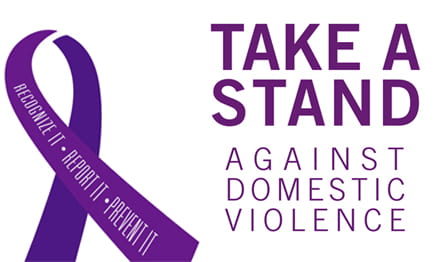Leaving at least 20 million Americans unemployed and over 260,000 dead in America alone (as of November 27, 2020), the Covid-19 pandemic has been cruel to humanity. The virus has relentlessly attacked all communities, but African Americans have been hit the hardest by its malignant effects. Immunologist Pernessa Seels stated, “Underlying health issues and limited access to treatment also partly explain why so many Coronavirus victims are black. In Chicago, an estimated 72% of COVID-19 deaths have been among blacks, who make up just 30% of the city’s population.” In addition to its deleterious effects on African Americans, the Coronavirus has also caused an increase in domestic violence cases. While many find comfort and safety in their homes, those who live in households with an abusive partner or family member(s) are faced with suffering the contrary; they are trapped in a dangerous environment and are susceptible to repeated acts of abuse. Students often confide in friends, teachers, or counselors for support, and adults might confide in their coworkers, but with the enforcement of quarantines by local and state authorities, safe places like schools and offices are no longer available to offer guidance and protection. With more exposure to hostile environments, essential businesses like pharmacies have wisely responded by implementing safe words and instructing their employees to call the police in cases of suspected safety concerns. For example, victims of domestic violence who enter French pharmacies will receive assistance if they say, “mask 19” to an employee. The primary focus of government officials during this pandemic is on keeping citizens safe, so when medicine becomes the top priority, racial disparities and a spike in domestic violence reports become lost in the mess. Luckily, there are innumerable ways to combat racial injustice and domestic violence, even during a pandemic. One way to do so is donating to former San Francisco 49ers quarterback Colin Kaepernick’s Know Your Rights Camp COVID-19 Relief Fund. Kaepernick addressed this crisis when he said, “Hundreds of years of structural racism is making Black and Brown communities more vulnerab le to the coronavirus. Black and Brown people are more likely to be infected, less likely to be tested, less likely to be treated, and more likely to die from COVID-19.” To support the fight against domestic violence, which is especially critical during this pandemic, organizations like the National Coalition against Domestic Violence are raising funds to support Congress’s efforts to contain the outbreak of cases. In closing, Coronavirus media coverage, much of which is focused on social distancing and vaccine development/treatments, might be deflecting attention from other important issues including high mortality rates among African Americans and a spike in domestic violence.
Bibliography
Blake, J. (2020, April 13). Black Americans are being hammered by a double pandemic. CNN. https://www.cnn.com/2020/04/12/health/black-americans-hiv-coronavirus-blake/index.html COVID-19 dashboard by the center for systems science and engineering (CSSE) at Johns Hopkins University (JHU). (n.d.). Johns Hopkins University. https://www.arcgis.com/apps/opsdashboard/index.html#/bda7594740fd40299423467b48e9ecf6 Know your rights camp: COVID-19 relief fund. (n.d.). Know Your Rights Camp. https://www.knowyourrightscamp.com/covid19 Kottasová, I., & Di Donato, V. (2020, April 6). Women are using code words at pharmacies to escape domestic violence during lockdown. CNN. https://www.cnn.com/2020/04/02/europe/domestic-violence-coronavirus-lockdown-intl/index.html The nation’s leading grassroots voice on domestic violence. (n.d.). National Coalition against Domestic Violence. https://ncadv.org/ Poverty rate by race/ethnicity. (n.d.). Kaiser Family Foundation. https://www.kff.org/other/state-indicator/poverty-rate-by-raceethnicity/?currentTimeframe=0&sortModel=%7B%22colId%22:%22Multiple%20Races%22,%22sort%22:%22asc%22%7D Schwartz, N. D. (2020, April 16). ‘Nowhere to hide’ as unemployment permeates the economy. The New York Times. https://www.nytimes.com/2020/04/16/business/economy/unemployment-numbers-coronavirus.html Taub, A. (2020, April 6). A new covid-19 crisis: Domestic abuse rises worldwide. The New York Times. https://www.nytimes.com/2020/04/06/world/coronavirus-domestic-violence.html

